No Forests = No Future: A Call to Support Indigenous Defenders on the Frontlines
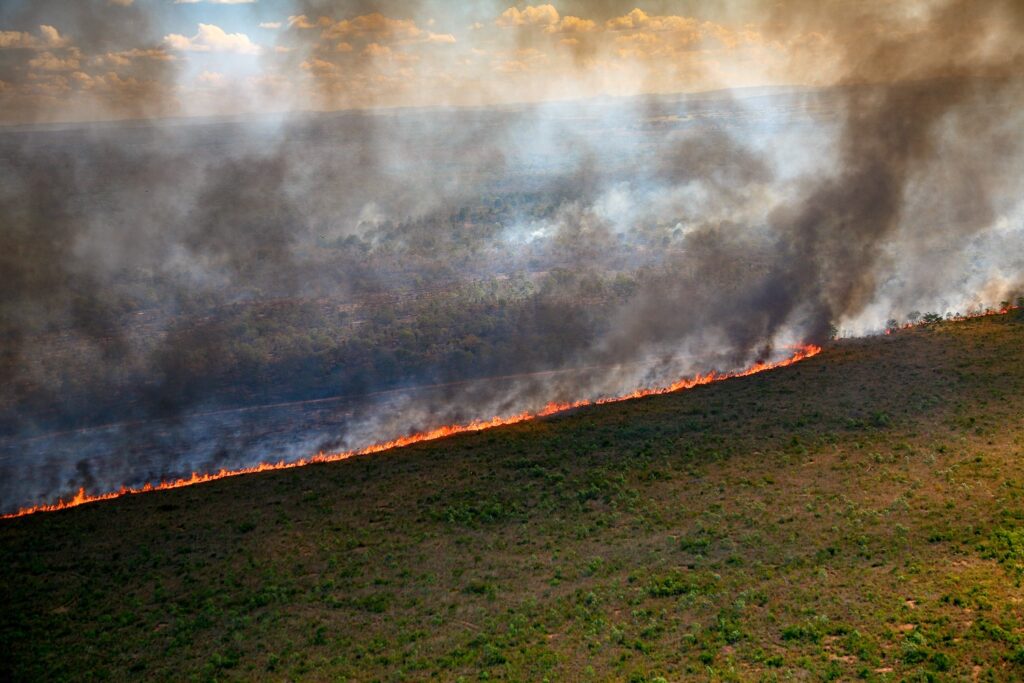
As we near the end of 2025, an urgent truth continues to drive our work: Without tropical forests, we have no future. Rainforest Foundation US (RFUS) has long supported Indigenous partners across the Amazon basin and Central America’s rainforests. It has been proven time again that Indigenous peoples are the most impactful defenders of rainforests […]
The Amazon Spoke. Did World Leaders at COP30 Listen?
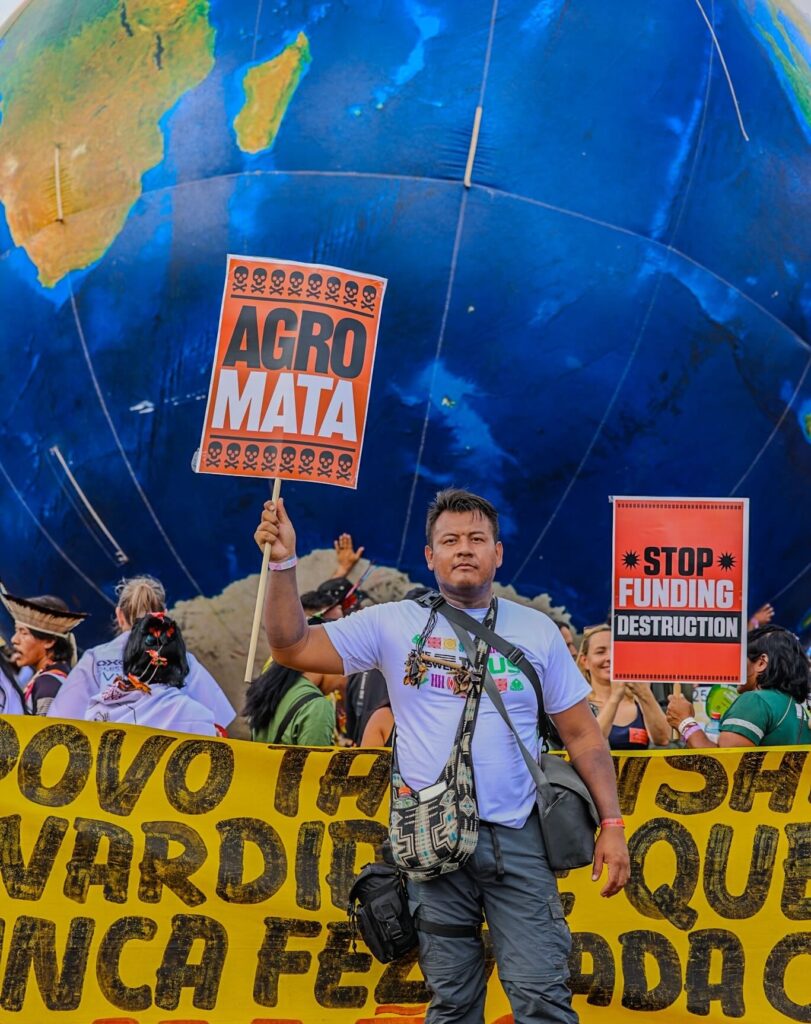
Every day, decisions made by governments, banks, and investors open the door to intensified resource extraction on Indigenous peoples’ territories. And with each decision made, the Amazon, a rainforest long at the mercy of extractive industries, is pushed closer to an irreversible tipping point. So when world leaders united to debate who should decide how […]
Mutirão: Brazil’s Indigenous answer to the climate crisis (Published by DW News)
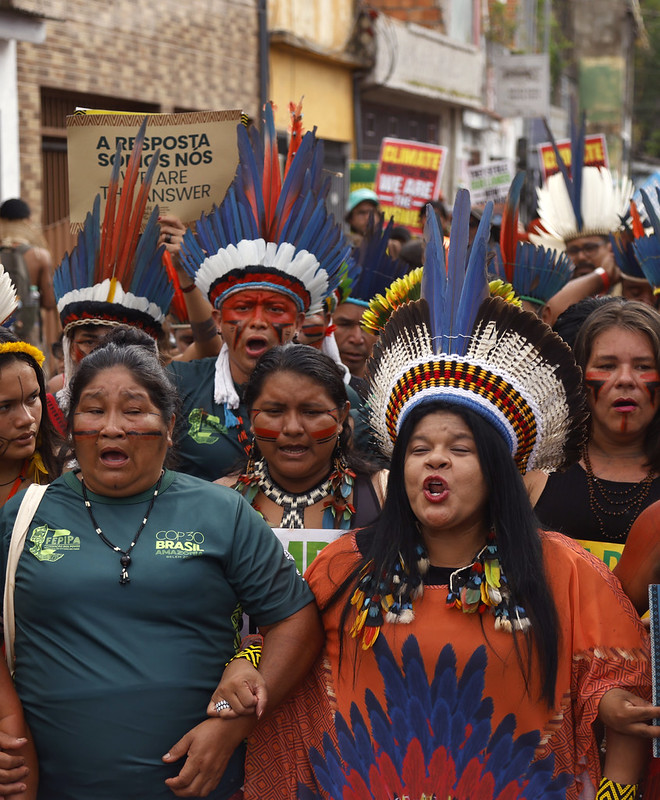
Amazon Flotilla: Indigenous Peoples Must be at the Center of COP30 Climate Negotiations
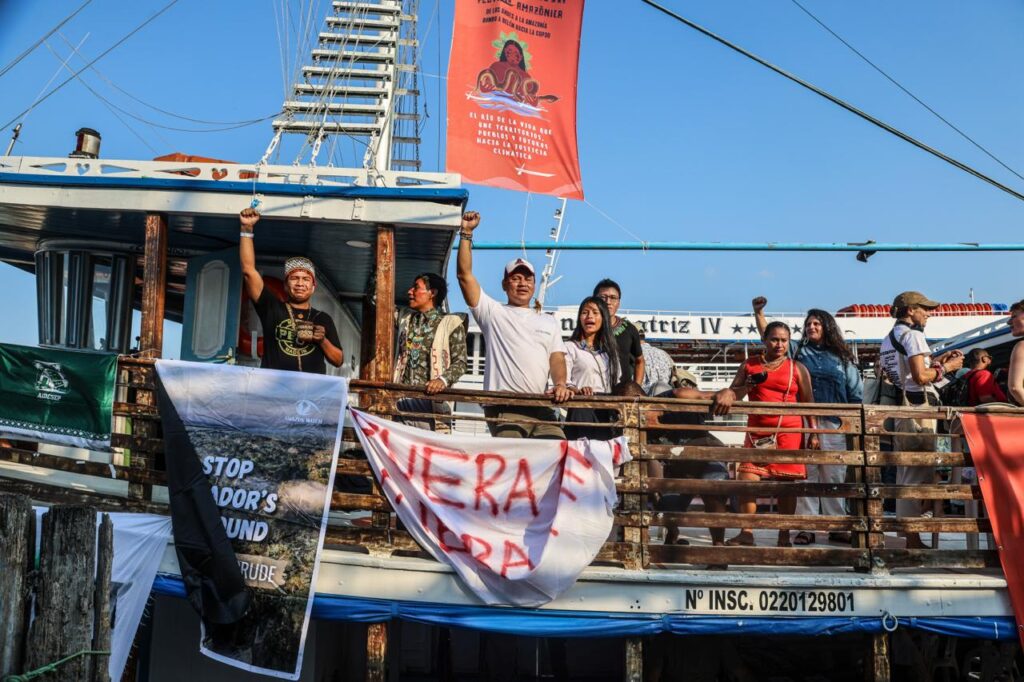
An extraordinary journey along the Amazon River just took place. The Yaku Mama Flotilla traveled over 1,800 miles from the Andes in Ecuador to Belém, Brazil, the host city of the next United Nations Climate Change Conference (COP30). This is the first time in history that the COP will take place in the Amazon. Onboard […]
Direct Access for Indigenous Peoples Is Key to the Effectiveness of the Tropical Forests Forever Facility

FOR IMMEDIATE RELEASE New York, 7 November 2025– The Tropical Forests Forever Facility (TFFF) was officially launched yesterday during the COP30 Leaders Summit in Belém, Brazil. The TFFF is an ambitious proposal from the Brazilian government to establish a lasting financial mechanism for forest protection. Following Brazil’s initial contribution, Portugal and Norway have announced their […]
Climate finance must reach Indigenous communities at COP30 & beyond (Commentary published by Mongabay)
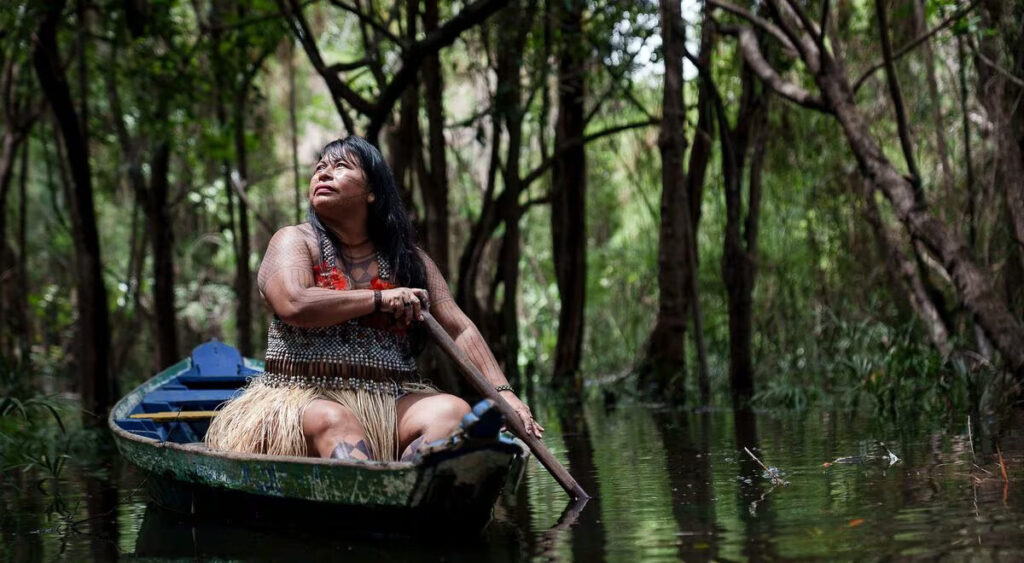
Amazonas Adentro | 3. The Watchers, the River, and the Opportunists (Podcast in Spanish by Radio Ambulante)

Building a Fairer Forest Finance System: Indigenous Leadership in the Tropical Forests Forever Facility
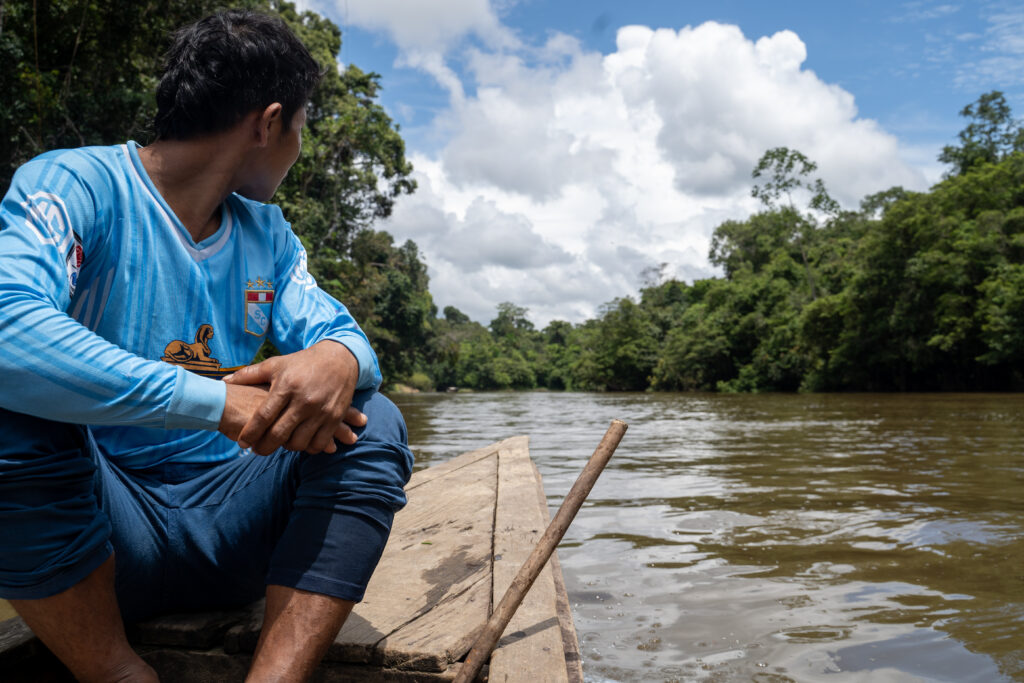
As world leaders prepare to gather in Belém, Brazil, for COP30 in November, one topic is expected to take center stage: the Tropical Forests Forever Facility (TFFF)—an ambitious proposal from the Brazilian government to create a lasting financial mechanism for forest protection. The TFFF aims to provide countries with steady, long-term payments for proven forest […]
RFUS’s 2030 Plan for Forests, Indigenous Peoples’ Rights, and Climate Action
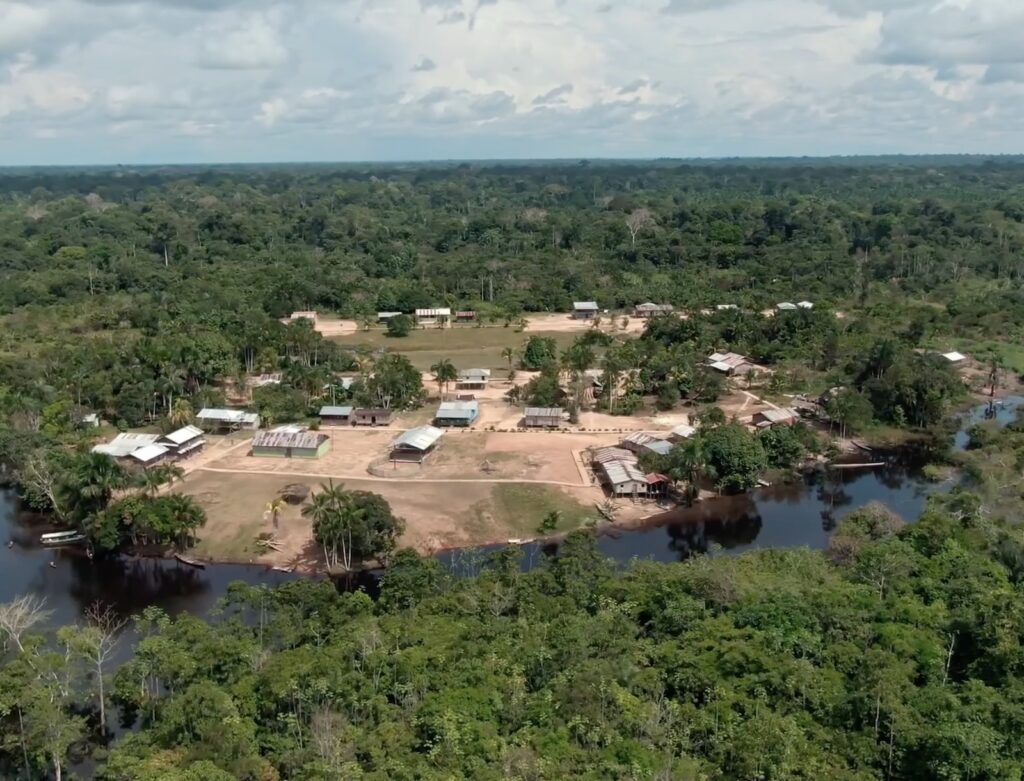
Rainforest Foundation US (RFUS) envisions a world where the rights of Indigenous peoples are respected and rainforests flourish. Our 2025–2030 Strategic Plan is a blueprint for achieving that vision, scaling Indigenous-led forest protection across Central and South America so that people, forests, and the climate can thrive together, now and for generations to come. Our […]
Fall 2025 Newsletter
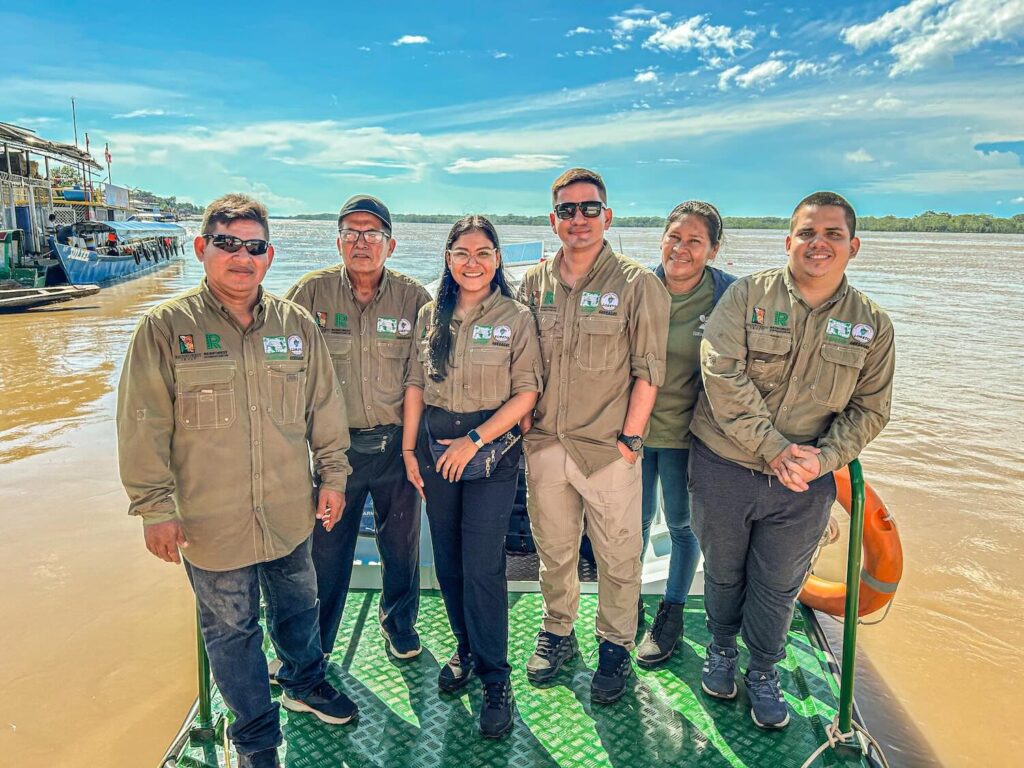
In the latest edition of our newsletter, discover how Rainforest Foundation US (RFUS) supports our Indigenous partners in overcoming barriers to unlock climate finance, read about new advancements in our land titling work in Peru, and learn how our partners are adapting to the growing threats of drought and fires in the Amazon.



